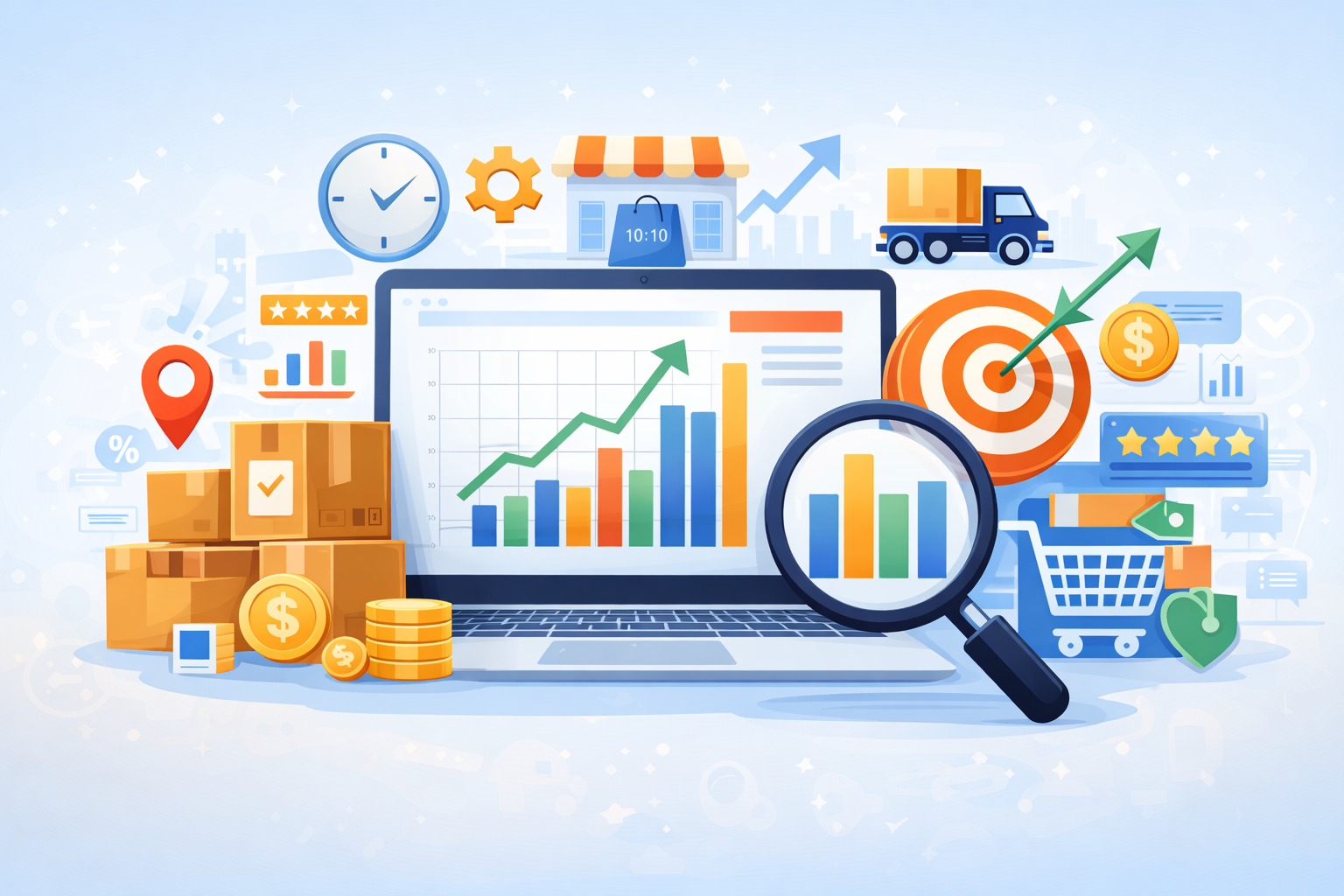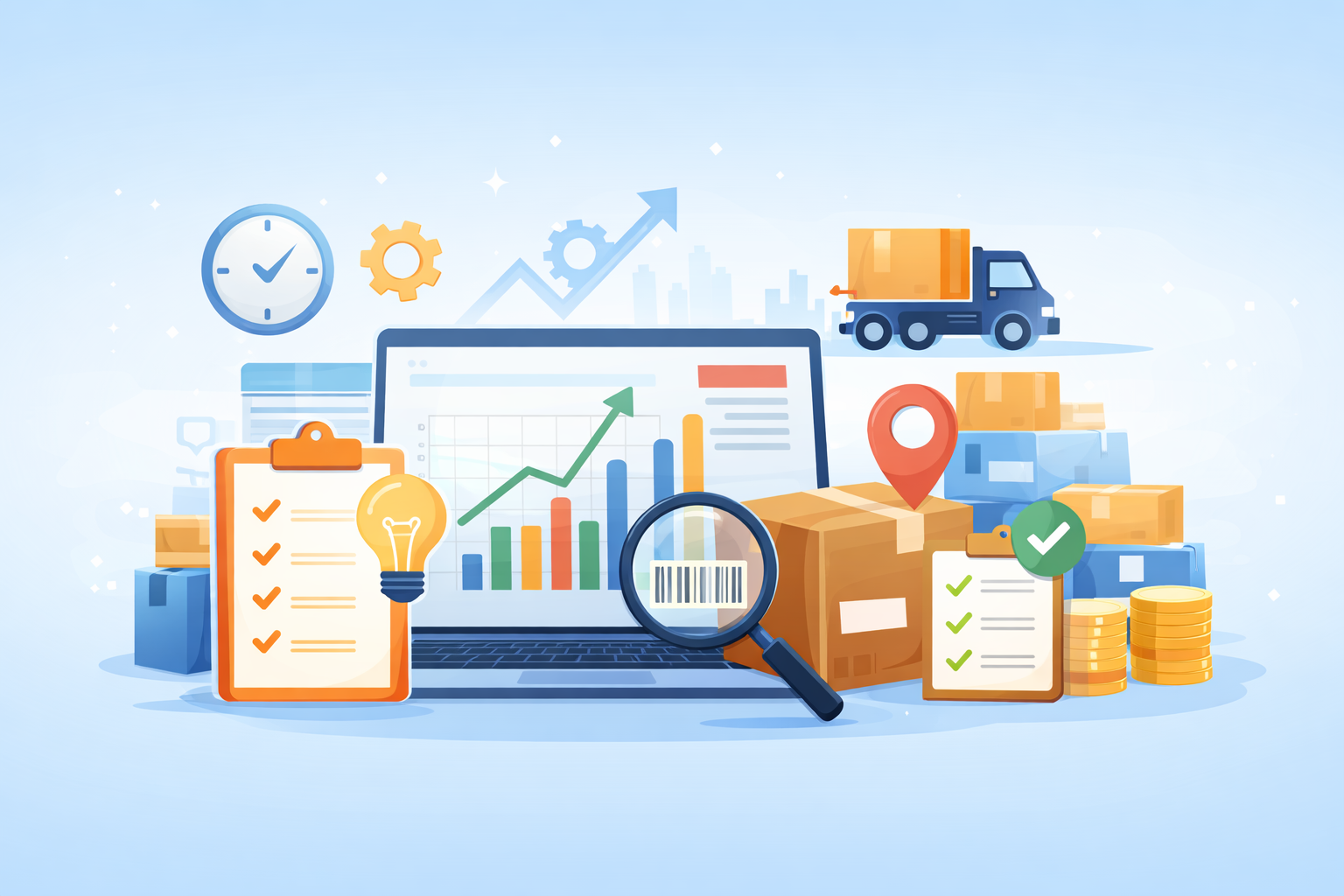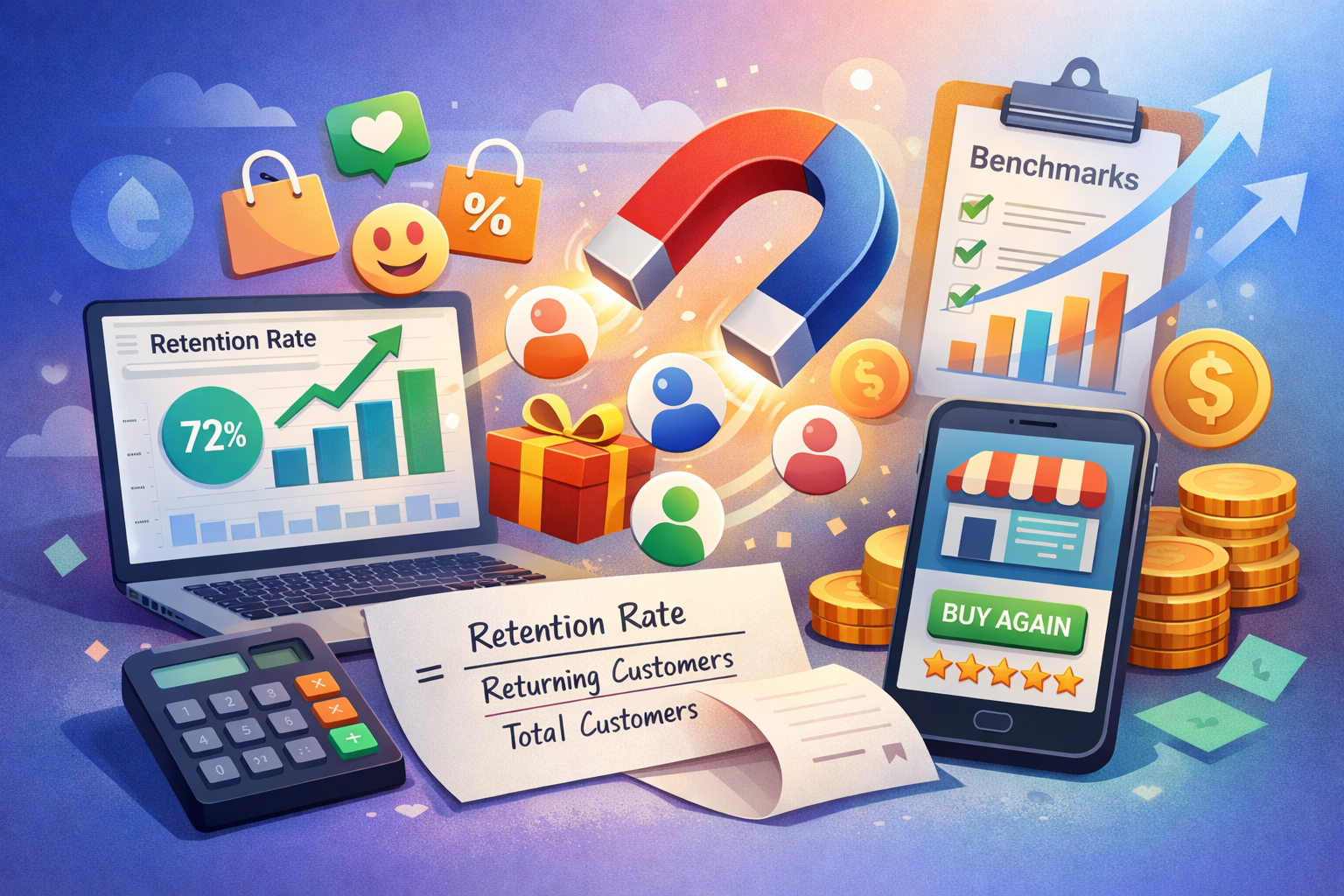Try Zipchat in Action!
Enter your store URL to see how Zipchat would behave.

Partner Article: Wapi | Arina Shalkovska
Fulfillment, in the context of logistics and e-commerce, refers to the complete process of receiving, processing, and delivering customer orders, typically involving the selection, packaging, and shipping of products to their intended destinations. This process encompasses various crucial activities, including order management, inventory management, order picking and packing, shipping, and often extends to handling returns and customer service. Effective fulfillment operations are essential for businesses to ensure timely and accurate delivery of products to customers while optimizing inventory and operational efficiency.
The process of finding the right fulfillment provider is far more than just a transaction; it is a strategic partnership that can either catapult your success or leave you grappling with inefficiencies and customer dissatisfaction. With an abundance of options available, it’s crucial to navigate the decision-making process with wisdom, precision, and a deep understanding of your unique business needs.
10 Points of Choosing a Fulfillment Partner

1. Assess Your Business Needs
Before you begin the search for a fulfillment partner, it’s crucial to assess your specific business needs. Consider factors such as order volume, product type, shipping destinations, and desired order processing times. Your chosen provider should be equipped to accommodate your current operations and future growth.
2. Research and Compare Providers
Extensive research is key to finding the ideal fulfillment in Europe or in any other region. Look for providers that specialize in your industry or product type. Investigate their reputation, customer reviews, and track record. Consider their geographic locations and their proximity to your target markets. Reach out to businesses that have used their services to gather feedback.gh
3. Technology Integration
Seamless integration of your e-commerce platform with your fulfillment provider’s systems is essential. Ensure they support your existing e-commerce software and offer real-time inventory management, order tracking, and reporting. This integration streamlines operations, minimizes errors, and enhances customer satisfaction.
4. Shipping and Fulfillment Speed
Fast and reliable order fulfillment is a must in e-commerce. Assess the fulfillment provider’s shipping capabilities, including the range of shipping options, shipping carriers, and delivery times. Look for a partner with the infrastructure to meet your shipping needs and exceed customer expectations.
5. Scalability
As your business grows, your fulfillment requirements will change. A reliable fulfillment service should offer scalable solutions that can adapt to your increasing order volumes. Inquire about their ability to handle seasonal fluctuations and surges in demand.
6. Customer Service
Excellent customer service is crucial when selecting a fulfillment provider. You need a partner that is responsive, easily accessible, and provides accurate final mile delivery and timely assistance when issues arise. Test their customer service by reaching out with questions and evaluating their response time and helpfulness.
7. Cost and Pricing Structure
Compare pricing structures among potential fulfillment providers. Understand the costs associated with storage, pick and pack, shipping, and any additional services. Transparency and a competitive pricing model are essential to align with your budget and profit margins.
8. Returns Handling
Returns are an inevitable part of e-commerce. Inquire about the provider’s returns handling process and the associated costs. An efficient and customer-friendly returns process can positively impact your brand reputation.
9. Quality Control
Quality control is paramount to ensure your products are shipped accurately and in good condition. Ask about their quality control measures, including how they handle damaged or defective items. Check for certifications, if applicable to your products, to ensure compliance with industry standards.
10. Sustainability and Ethical Practices
Consumers are increasingly conscious of the environmental and ethical practices of the businesses they support. Consider the fulfillment provider’s sustainability initiatives and ethical standards, as these factors can influence consumer trust and loyalty.
How to Choose the Location Step-by-step

Selecting the right location for a fulfillment center in Spain or in any other country is a critical decision that can impact the efficiency and success of your business. Here’s a step-by-step guide on how to choose the optimal location:
1/ Analyze Your Customer Base
Start by analyzing your customer demographics, including their locations and order distribution. Identify areas with the highest concentration of customers or the most significant demand.
2/ Evaluate Shipping Times and Costs
Calculate shipping times and costs to various regions. If you want to expand your business in Germany then you need a fulfillment center in Germany or the closest one. Consider how the location will affect your ability to offer fast and cost-effective shipping to your customers.
3/ Consider Proximity to Key Markets
Identify key markets or regions that are critical to your business’s growth. Choose a location that is close to these markets to minimize transit times and costs.

4/ Assess Transportation Infrastructure
Evaluate the quality of transportation infrastructure in the region, including proximity to major highways, ports, airports, and railroads. Easy access to transportation networks is essential for efficient inbound and outbound logistics.
5/ Examine Labor Availability
Investigate the availability of skilled labor in the area. A well-trained workforce is crucial for the smooth operation of any warehouse in Europe or in any other region. Consider labor costs and availability when making your decision.
6/ Tax and Regulatory Considerations
Research local tax rates, regulations, and incentives that may apply to your business. Some regions offer tax benefits to attract businesses, so it’s essential to explore these opportunities.
7/ Seasonal and Weather Considerations
If your business experiences seasonal variations in demand, factor in how the location may impact your ability to manage these fluctuations. Additionally, assess the region’s weather and how it may affect shipping and operations.
8/ Disaster Preparedness
Evaluate the area’s susceptibility to natural disasters such as hurricanes, earthquakes, or floods. While no location is entirely immune to disasters, you can choose areas with lower risks and implement disaster preparedness measures.
9/ Inventory Management
Consider how the location of the fulfillment center will impact your inventory management. Multiple locations may be necessary to optimize stock levels and reduce the risk of stockouts.

10/ Sustainability and Environmental Impact
In line with growing environmental concerns, think about sustainability and environmental impact. Choosing a location that supports sustainability initiatives can enhance your brand image and appeal to environmentally conscious consumers.
11/ Expansion and Growth
Plan for the future. Consider whether the location is suitable for accommodating your business’s growth. Choosing a location with expansion opportunities can save you the hassle of relocating in the future.
12/ Competitive Analysis
If you choose for example Europe as a growth geo then you have to research your competitors and their european fulfillment centers locations. A location that gives you a competitive advantage, such as faster delivery times, can be a strategic choice.
13/ Seek Expert Advice
Consider consulting with experts in logistics and site selection. Professionals in this field can provide valuable insights and help you make an informed decision.
14/ Conduct Site Visits
Whenever possible, visit potential fulfillment center locations in person. This will allow you to assess the infrastructure, local conditions, and the overall suitability of the area.

15/ Weigh the Pros and Cons
Create a detailed pros and cons list for each potential location. This will help you make an informed decision by considering all relevant factors.
In conclusion, choosing the right location for a fulfillment center in the UK or in any other region requires a comprehensive analysis of multiple factors, including customer base, shipping logistics, labor, taxes, and regulatory considerations. By carefully evaluating these factors and conducting thorough research, you can make an informed decision that aligns with your business’s goals and operational needs.
Is Your Product Suitable for Fulfillment?

Fulfillment services can be an excellent match for a wide range of product types, particularly for businesses looking to streamline their order processing and shipping operations.
The list of product types that benefit from fulfillment services
- Consumer Electronics: Products like smartphones, tablets, headphones, and accessories are well-suited for fulfillment services due to their popularity and varying models.
- Apparel and Fashion: Clothing, footwear, and fashion accessories can be efficiently handled by fulfillment centers, especially for e-commerce businesses with a wide range of sizes and styles.
- Health and Beauty Products: Cosmetics, skincare products, vitamins, and health supplements are popular e-commerce items that often require accurate and efficient order processing.
- Home and Kitchen Goods: Fulfillment services are ideal for products like kitchen appliances, home décor, and furnishings.
- Books and Media: Books, DVDs, CDs, and other media products can be effectively fulfilled through these services.
- Toys and Games: Toys, board games, and hobby items are frequently ordered online and can benefit from streamlined fulfillment.
- Consumer Goods and Gadgets: Items such as gadgets, tools, and small household appliances are often distributed via fulfillment centers.
- Food and Beverages: Non-perishable food items, gourmet products, and beverages are suitable for fulfillment, particularly for businesses offering a wide variety of items.
- Jewelry and Accessories: Precious items like jewelry, watches, and accessories can be efficiently processed through fulfillment services.
- Sports and Outdoor Equipment: Fitness equipment, sporting goods, and outdoor gear are often bulky, making fulfillment services beneficial for efficient storage and shipping.
- Automotive Parts and Accessories: Fulfillment services can help manage the vast inventory and diverse product range of automotive parts and accessories.
- Electronics Accessories: Products such as cables, chargers, and electronic components are frequently sold online and can benefit from accurate order fulfillment.
- Office and School Supplies: These items are often ordered in bulk and can be efficiently managed by fulfillment centers.
- Pet Supplies: Pet food, accessories, and healthcare products are popular e-commerce items that benefit from efficient fulfillment.
- Baby and Child Products: Baby gear, clothing, and toys are common online purchases and can be streamlined through fulfillment services.
- Collectibles and Memorabilia: Collectible items, memorabilia, and niche market products can be efficiently stored and shipped by fulfillment centers.
- Home Improvement and DIY Products: Tools, building materials, and DIY supplies can be effectively managed through fulfillment services.
- Art and Craft Supplies: Crafting materials, art supplies, and hobbyist products are well-suited for fulfillment centers, especially for businesses with a wide range of items.
- Electronics Components: Businesses dealing with electronic components or hobbyist kits often benefit from efficient fulfillment.
- Subscription Boxes: Subscription box businesses across various industries, from beauty to food to lifestyle, often rely on fulfillment services to handle their monthly shipments.
While fulfillment services can benefit a wide range of product types, there are some products that may not be an ideal match due to their unique characteristics or handling requirements.

The list of product types that may not be well-suited
- Perishable Food Items: Products like fresh produce, dairy, and frozen goods require specialized cold storage and fast shipping, making them less compatible with standard fulfillment services.
- Large, Oversized Items: Extremely bulky or heavy items, such as furniture, large appliances, or industrial machinery, may be cost-prohibitive to store and ship through traditional fulfillment centers.
- High-Value and Extremely Fragile Items: Products with a high value or that are extremely fragile, such as fine art, antiques, or collectible items, may require specialized handling and insurance beyond what fulfillment services typically offer.
- Custom or Made-to-Order Products: Businesses that offer highly customized or made-to-order items often require a more personalized approach that traditional fulfillment centers may not provide.
- Products with Complex Assembly: Items that require complex assembly or installation, like home gym equipment or kitchen cabinets, may not be suitable for fulfillment services due to the need for on-site setup.
- Hazardous or Restricted Materials: Products that are considered hazardous materials, such as explosives, flammable chemicals, or certain industrial chemicals, often face strict regulations and safety requirements that may not align with traditional fulfillment services.
- Highly Regulated and Controlled Substances: Pharmaceuticals, prescription medications, controlled substances, and certain medical equipment require strict regulatory compliance and may not be compatible with standard fulfillment services.
- Live Animals: Shipping live animals or pets involves specialized care, transportation, and legal considerations, making it unsuitable for most fulfillment centers.
- Custom-Made Clothing and Tailoring: Custom-made clothing and tailoring services often require direct customer interaction and detailed measurements, making them less suitable for remote fulfillment.
- Highly Perishable Flowers: While dried or artificial flowers may be suitable for fulfillment, highly perishable fresh flowers are time-sensitive and may not withstand standard fulfillment timelines.
- Items with Extreme Temperature Sensitivity: Products that are sensitive to temperature fluctuations, such as pharmaceuticals or specialized chemicals, may not be suitable for standard fulfillment centers lacking temperature-controlled storage.
- Products Requiring Extensive Testing or Quality Control: Items that require extensive quality control or testing before shipment, like high-precision scientific instruments, may not align with the rapid order processing of fulfillment services.
- Extremely Low-Cost Items: Products with very low retail prices may not be cost-effective to store and ship through fulfillment services, as the handling fees may outweigh the product’s value.
- Unique, One-of-a-Kind Items: Businesses dealing with unique, one-of-a-kind, or rare items may prefer to handle these products themselves to ensure their individualized care and attention.
It’s important to note that there are specialized fulfillment and logistics solutions for some of the product types mentioned above. In such cases, businesses may need to explore niche fulfillment providers that can meet their specific requirements. When considering a fulfillment service, it’s essential to thoroughly assess the compatibility of your product type with the provider’s capabilities and infrastructure.
Conclusion
In conclusion, choosing the right fulfillment provider is a pivotal decision that can shape the efficiency and success of your business in the ever-evolving landscape of e-commerce. It involves a careful balancing act of assessing your unique business needs, conducting thorough research, and evaluating a myriad of factors, from location and shipping speed to cost-effectiveness and customer service. Making an informed choice is a strategic investment in your business’s future, enhancing not only operational efficiency but also customer satisfaction and overall growth.
With the right fulfillment partner, you can streamline your order processing and delivery, allowing you to focus on what matters most — building and growing your business. So, take the time to select your fulfillment provider wisely, and you’ll be well on your way to achieving greater success in the world of e-commerce.









